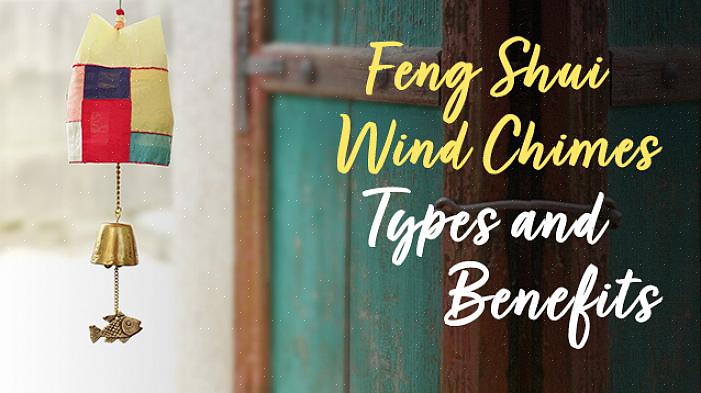Wind chimes are a very popular feng shui remedy, and there are a variety of ways to use them for good feng shui. In fact, wind chimes are one of the most common feng shui remedies, used to both remove and heal negative energy, as well as to add energy where chi is lacking. Some authorities prefer to keep wind chimes outside in the garden where they are naturally suited (that’s where the wind is, after all), but other practitioners have no qualms about the careful use of wind chimes indoors. A small wind chime containing small rock crystals, for example, can be very effective indoors.
According to traditional schools of feng shui, wind chimes are primarily used to heal negative energies, whether applying annual feng shui updates or challenging permanent energy patterns within a home.
Ways to use wind chimes in feng shui
If you need a solid metal feng shui element in a specific bagua area, like the northwest, for example, a consultant may recommend a metal wind chime with six strings/bells-six being the feng shui number for the northwest. The recommended choice would be a wind chime with hollow tubes, to allow potential sha chi to be transmuted into sheng chi energy quality.
There are three main considerations when choosing wind chimes for specific feng shui placements:
- The material used in the chimes
- The number of rods or bells
- The symbols present in the design
Material
Always make sure to match the feng shui element or material used in the wind chimes to the element of the bagua area where you wish to place it. A metal wind chime can be placed in the west, northwest and north, while a wood/bamboo chime can be placed in the east, southeast and south bagua zones. Sometimes you can even find wind chimes made with porcelain or clay bells, which is an earth feng shui element best suited for the earth or wood feng shui bagua areas (central, southwest, northeast, east and southeast).
As with any feng shui cure, be careful not to weaken or damage the main element of a bagua area. For example, do not place a metal wind chime in the east (wood element area) or a wooden chime in the earth element area (southwest).
Some authorities believe that hollow chime rods are the best choice where you are looking for an energizing influence, while solid rods are best where you are looking to suppress energy. There is some debate about this, however.
Symbols
Many feng shui wind chimes come with traditional symbols, such as a chi lin feng shui wind chime for protection, or the mystical knot wind chime for abundant energy. A clay chime with two hearts will obviously be an excellent choice for the southwestern (love and marriage) area of your home or garden, while a chime with a Buddha image will work well with northeastern (spiritual growth) feng shui energies and self-cultivation bagua areas.
Numbers
When using a wind chime as a feng shui remedy, also pay attention to the number of rods or bells. The numbers 6 and 8 are the most popular numbers of bells in a wind chime if you want to increase beneficial energy, while 5 is considered the best when you want to suppress bad energy, most often from an annual feng shui star.
If you like wind chimes, be sure to use them in your feng shui applications and don’t be afraid to bring them inside. Just be sure to consider the materials, symbols, and number of rods/bells when choosing the best wind chimes for your desired location and use.
Wind Chime Do’s and Don’ts
Here are some common tips on using wind chimes:
Don’t hang wind chimes on a door, so that it can be hit by people or the door itself.
Do not hang metal wind chimes in trees, as the metal element will strike the wood of the tree. Wooden chimes are acceptable when hung in trees.
Do not hang wind chimes where people sit or sleep directly under them. The energizing influence may disturb people in direct contact.
Use wind chimes in congested areas. The chimes will break up the “stickiness” of the energy in these areas and make them easier to clean.


